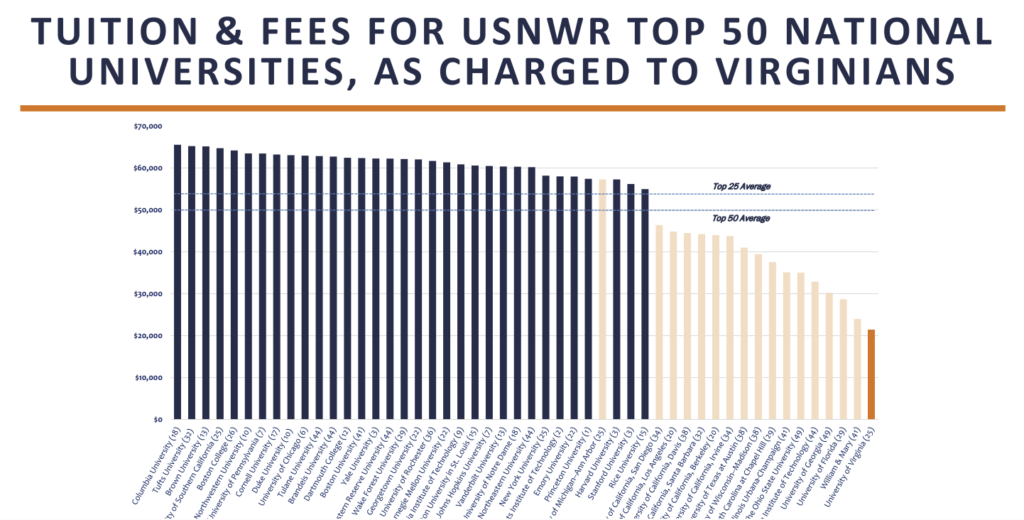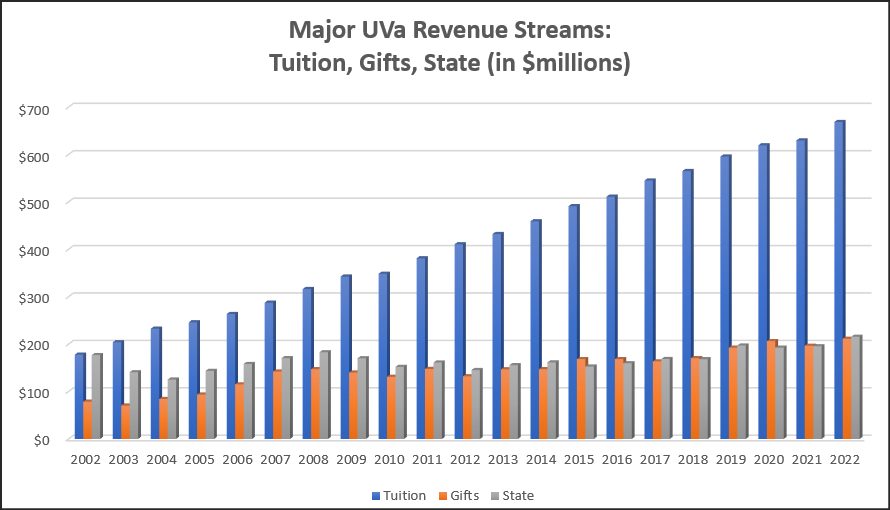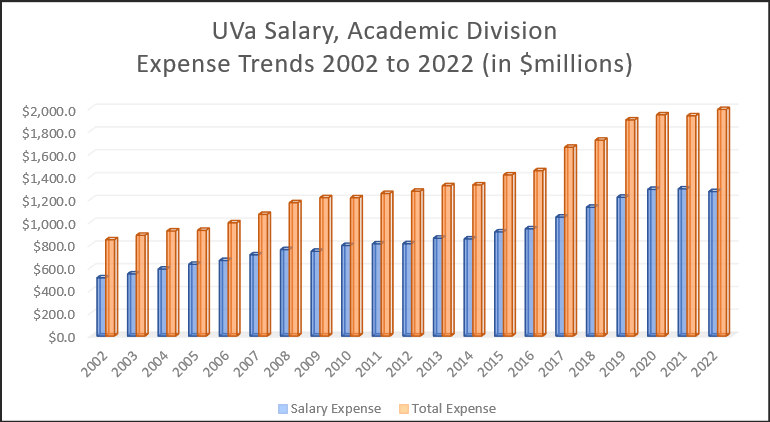
UVa is the bold orange line at the far right. To view a more legible image of this graph, click here and scroll to page 31 of the pdf.
by James A. Bacon
The University of Virginia Board of Visitors sets tuition & fees every other year. This is one of those years. In December the Board is scheduled to announce tuition and fees for the following two academic years. The decision-making process is sure to be controversial, as a number of Youngkin appointees on the board are fiscal hawks who hope to keep costs down and tuition hikes low.
The Ryan administration fired an opening salvo by distributing the graph above, which shows UVa in a highly flattering light. If you are a Virginia resident and wish to attend one of the Top 50 universities in the country (as rated by USNWR, or U.S. News & World Report), UVa charges the lowest tuition and fees. The graph is hard to read, but UVa is represented by the bold orange line at the far right, so you can see that it is the lowest by a wide margin.
Presentation of the graph prompted the most animated discussion by Board members so far in the September meeting. Continue reading





